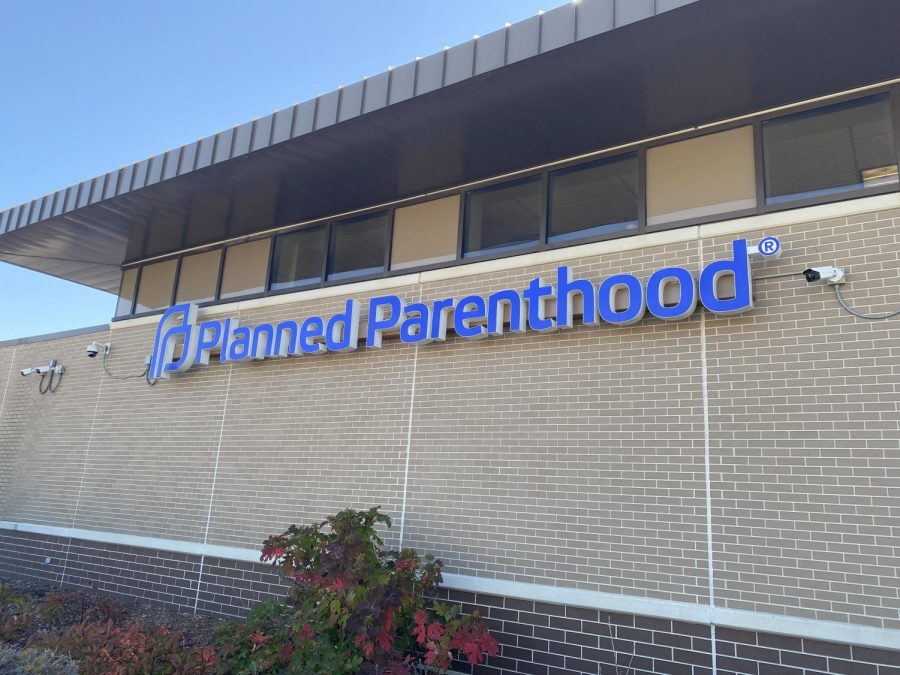A Perspective on Abortion in Illinois
A recent reproductive rights press conference gave insight on the progressive point of view
October 10, 2022
A pregnant mother was traveling with her child from Indiana to Illinois. Her destination was a health center in Flossmoor. Once there, she realized she was too far long for what the health center offered. At this point, after making the journey, the mother had to go back to Indiana, drop her child off, and pick up a friend to come with on the return trip to Illinois. This time, her destination was the health center in Aurora where she could get the care she needed. All of this was in a day.
The arduous journey was because the mother could not get an abortion in her home state. Jennifer Welch, president and CEO of Planned Parenthood of Illinois shared that story at a recent press conference hosted by Illinois Rep. Sean Casten. This and the countless stories just like it are a result of the abortion bans enforced in many states, according to Welch. She said many of the out-of-state patients coming to Illinois are from Wisconsin, Ohio and Texas.
“These things are all too common in the new reality the Supreme Court has forced on us,” Welch said.
Another example she gave was a patient from Tennessee who came to the Aurora Health Center because it was the earliest care the patient could get, given the woman had only two days off from work.
Welch said the abortion bans have had an especially large impact on marginalized groups, including women of color. A joint report from the Center for Reproductive Rights, a global human rights organization the works to protect reproductive rights, and Ibis Reproductive Health, a research group the focuses on the advancements of sexual and reproductive health around the world, states that women of color are more likely to live in states with the most restrictive abortion laws. An article from the Guttmacher Institute, a research and policy organization that focuses on advancing sexual and reproductive health, stated that women of color are more likely to experience barriers to reproductive and maternal services.
Welch accused Republican legislators of being hypocritical in their position on the Roe V. Wade case, at first saying the issue was about states’ rights and then, in an about-face, attempting to ban the procedure nationally. The most widely recognized national ban, proposed by Republican South Carolina Sen. Lindsey Graham, received largely negative attention from Republicans in the Senate.
Welch said banning abortion is another example of government interfering in our day-to-day lives. Casten agreed.
“Roe did not say that you have a federal right to abortion,” Casten said. “What Roe said is this is an individual right.”
Pro-choice groups have stated that having access to abortions is a key economic, educational and health factor for women and their families.
Casten, speaking of the morbidity of the issue, noted “you have different rights as a woman in Illinois than as a woman in Missouri. I didn’t say resident of Illinois, because if you’re out of state for a job, if you’re going to college somewhere else, or maybe you’re in the military and you’re deployed to another state, you have fewer rights.”
A second sentiment that Welch and Casten had in common was that Illinois is a bastion of the right to abortion. Illinois is the only state in the Midwest without a mandatory waiting period – an amount of time between pre-abortion counseling and the procedure itself during which the patient receives counseling.
Illinois is also the second state in the U.S. to enact statutory protection for abortion as a fundamental right and in the Midwest to require that birth control be available through a pharmacist without a doctor’s visit, according to The Century Foundation, an independent organization that pursues equity in healthcare, education and workforce.
Welch said Illinois has seen a steady increase in out-of-state abortion patients that has only risen in the wake of Roe v. Wade being overturned. She said local Planned Parenthood centers are serving more out of state abortion patients than ever before, with nearly 30% of their patients coming from out of state. At the Aurora health center alone, there has been a 500% increase in the amount of out-of-state patients. In an earlier interview with the Chicago Tribune, she predicted an increase of 20,000 to 30,000 out-of-state abortion patients annually in the coming years. All of this points towards increasing wait times for the procedure.
The Courier reached out to three anti-abortion clinics for statements on the issue. None of the administrators of the clinics responded to interview requests.




















